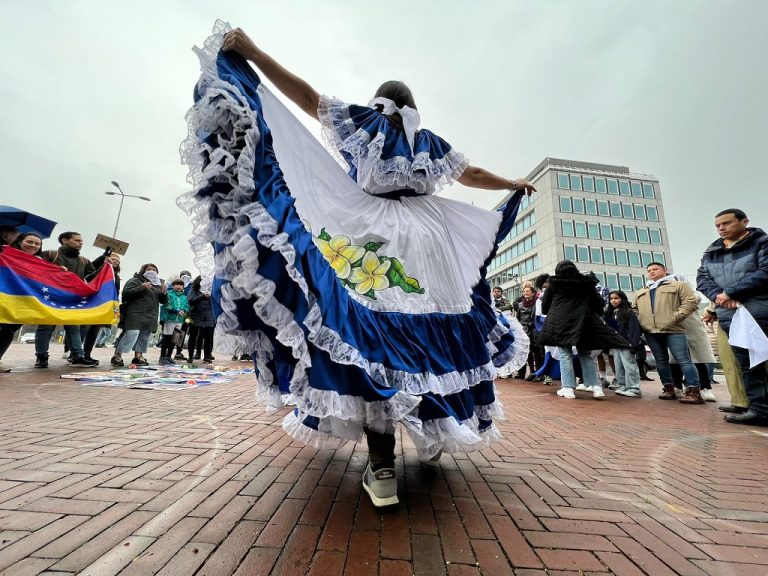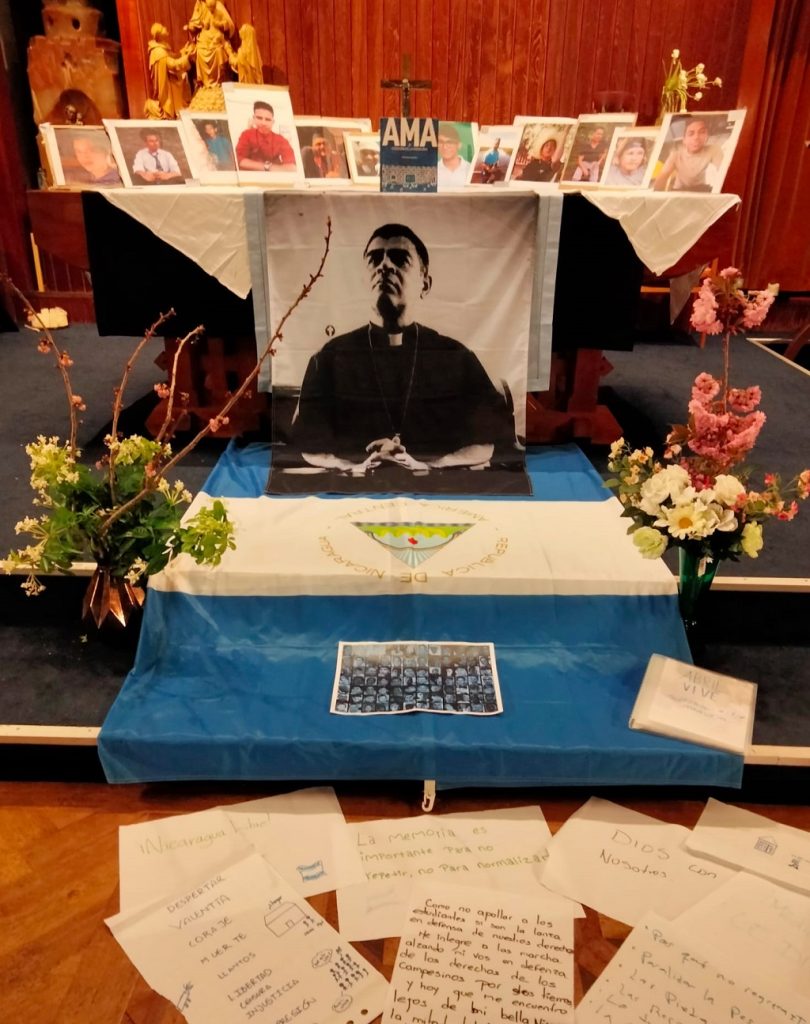25 de abril 2023

The Return of the Military

PUBLICIDAD 1M
PUBLICIDAD 4D
PUBLICIDAD 5D
Even though the dictator won’t allow us to return, we’ll always be Nicaraguans. That’s something no one can take away from us

A woman in folkloric Nicaraguan dress dances during a demonstration in La Haya, Holland. Photo: Loanny Picado
“In a place where I played as a child, I had a friendship with a boy who will play no more.”
In a corner of the Hague, Holland, this song from the duo Guardabarranco rings out. A small group of exiled and resident Nicaraguans raise their voices in unison with the words, caught between nostalgia and sadness for their inability to return to the land where they were born.
Since the 2018 civic insurrection, thousands of Nicaraguans have emigrated, forced to do so by the repression of the Ortega-Murillo dictatorship. In the Netherlands, some 100 Nicaraguans are currently in the process of seeking asylum, due to the threats of death and imprisonment they’ve received from the armed groups and the regime.

There are whole families trying to begin a new life here, a country totally different from the one they were born into. They struggle to adapt to the system, learn the language and work to support their family members who are still in Nicaragua.
Although five years have passed since the civic insurrection of 2018, Nicaraguans in Holland are still keeping the struggle alive, holding tight to the memories that link them to the past. Their connections with their loved ones in Nicaragua make them aware that the situation in the country hasn’t changed. Its residents are still living with injustice and impunity.
A portrait of Monsignor Rolando Alvarez, the bishop of Matagalpa imprisoned by the dictatorship, hangs from the pulpit in the chapel’s prayer gallery, while photos of those who’ve been assassinated in Nicaragua are displayed above it. The exiles feel an immense respect and admiration for the Monsignor’s courage in the face of adversity, considering him a true priest to those who still remain behind bars.
“Impunity, never again! Dictatorship, never again!” those present exclaim, during the gathering to commemorate the victims the regime has left us. Being far away hasn’t altered our will to continue fighting and denouncing the human rights violations in our nation.
It’s not at all easy to try to go on living normally when you know that in your country things are getting ever worse. The sense of impotence increases when – from a distance – you can only echo what’s happening in Nicaragua. Social activism hasn’t ceased in our far-off trenches, but at times spirits falter, watching the years pass while the dictator remains on his throne.
However, then we recharge our batteries and once more go out on the streets – this time on foreign soil, in a place where we don’t fear being attacked by the Police or seeing groups of armed paramilitaries appear to kill us.
The mist falls over the Hague, and the cold spring wind enfolds our clamor, yelling for freedom for Nicaragua, and for those who are still imprisoned. I don’t know if the Dutch understood our phrases, but the message has been set in their minds, of a country where there’s no democracy and no justice.
After so long, we could go out and protest, and sing the national anthem. For a moment, on that April afternoon in Holland, we embodied a small but noisy Nicaragua. I don’t know what we can expect, but we are very clear that, even though the dictatorship won’t allow us to return, we’ll always be Nicaraguan, by the grace of God. That’s something no one can take away from us.
“Shine a light for this people who love living so much, in Nicaragua.”
This article was originally published in Spanish in Confidencial and translated by Havana Times
PUBLICIDAD 3M
Loanny Picado es periodista nicaragüense especializada en deportes, viviendo en Holanda. La columna “Dentro y fuera de la cancha” es una colaboración con la Revista Niú. Puede contactarse y seguir a la autora en sus redes sociales.
PUBLICIDAD 3D